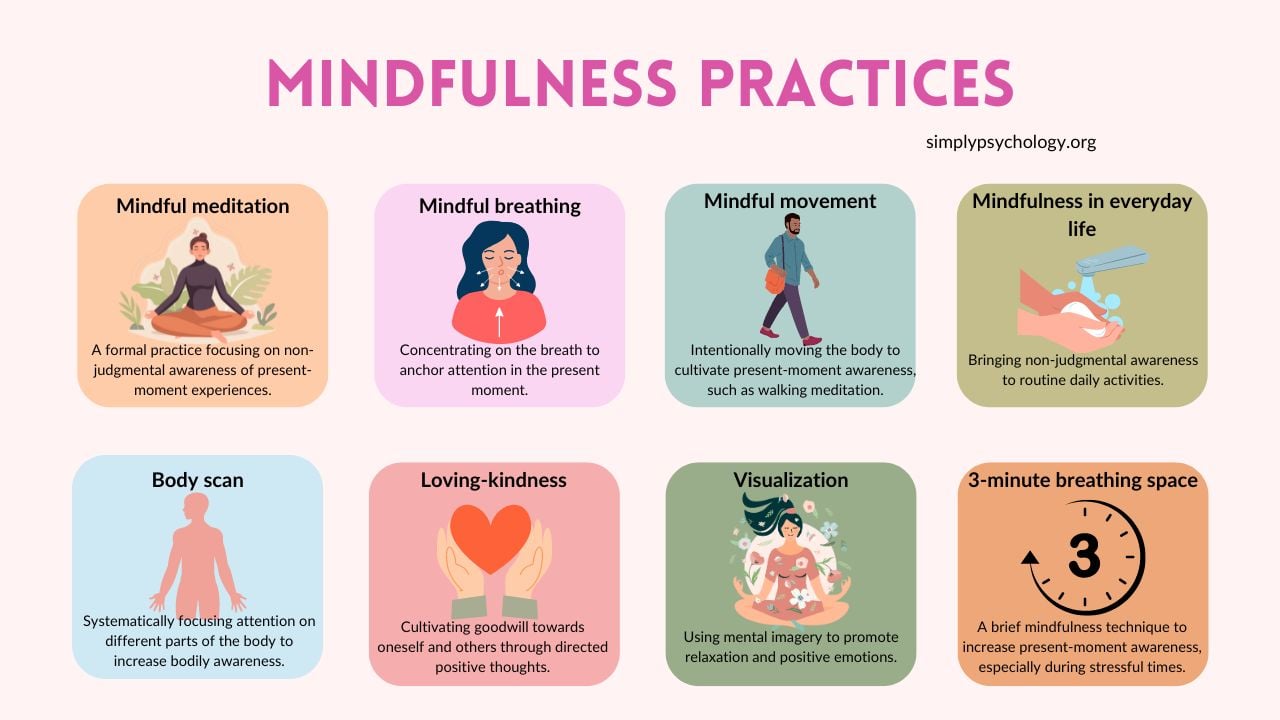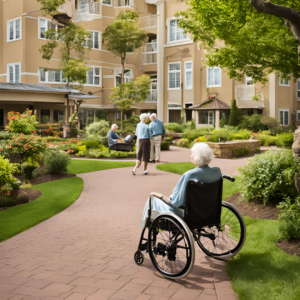As we age, maintaining mental health becomes increasingly important. Mindfulness, the practice of being present and fully engaged in the moment, offers seniors valuable tools for reducing stress, enhancing emotional well-being, and improving cognitive function. Here are some effective mindfulness techniques tailored for seniors to boost mental health.
1. Mindful Breathing
Breathing exercises are a simple yet powerful way to center oneself and reduce anxiety. To practice mindful breathing:
- Find a Comfortable Position: Sit or lie down in a quiet space.
- Focus on Your Breath: Close your eyes and take a deep breath in through your nose, feeling your abdomen expand. Hold for a moment, then exhale slowly through your mouth.
- Count Your Breaths: For added focus, count each inhale and exhale up to ten, then start over.
Tip: Aim for 5-10 minutes of mindful breathing each day to cultivate a sense of calm.
2. Body Scan Meditation
The body scan technique helps increase awareness of physical sensations and promotes relaxation. To perform a body scan:
- Lie Down Comfortably: Close your eyes and take a few deep breaths.
- Focus on Each Body Part: Start at your toes, notice any tension, and consciously relax each part as you move up through your feet, legs, abdomen, arms, neck, and face.
- Release Tension: Imagine breathing warmth into any areas of tension and exhaling the stress out.
Tip: This practice can take 10-20 minutes and can be done lying down or sitting in a comfortable chair.
3. Guided Imagery
Guided imagery involves visualizing peaceful scenes or experiences to promote relaxation. Here’s how to practice:
- Choose a Quiet Space: Sit comfortably and close your eyes.
- Visualize a Calm Place: Imagine a serene location, like a beach or a forest. Focus on the details—sounds, smells, and sights.
- Engage Your Senses: As you visualize, think about how it feels to be there, allowing yourself to fully immerse in the experience.
Tip: Use recorded guided imagery sessions available online for additional support.
4. Mindful Eating
Practicing mindfulness during meals can enhance enjoyment and promote healthier eating habits. To try mindful eating:
- Eliminate Distractions: Turn off the TV and put away phones during meals.
- Savor Each Bite: Take small bites, chew slowly, and pay attention to the flavors and textures of your food.
- Reflect on Your Meal: Consider where your food came from and the effort involved in preparing it.
Tip: Try to engage in mindful eating for at least one meal a day to cultivate awareness and appreciation.
5. Nature Walks
Spending time in nature can enhance mindfulness and improve mental health. To incorporate nature walks:
- Choose a Scenic Route: Find a local park or garden to explore.
- Focus on the Present: As you walk, pay attention to the sights, sounds, and smells around you. Notice the feel of the ground under your feet and the breeze on your skin.
- Practice Gratitude: Take a moment to appreciate the beauty of nature and express gratitude for the experience.
Tip: Aim for short, regular walks to establish a consistent routine.
6. Journaling
Journaling can be a therapeutic mindfulness practice, allowing seniors to reflect on their thoughts and feelings. To start journaling:
- Set Aside Time: Dedicate a few minutes each day to write in your journal.
- Reflect on Your Day: Write about your experiences, emotions, or things you are grateful for.
- Use Prompts: If you’re unsure where to start, use prompts like “What brought me joy today?” or “What challenges did I face?”
Tip: Journaling can be done in any format—handwritten or digital—whichever feels most comfortable.
7. Mindfulness Groups
Joining a mindfulness group can provide social support while practicing mindfulness techniques. Benefits include:
- Shared Experience: Engaging with others creates a sense of community and shared understanding.
- Guided Practices: Many groups offer guided sessions, making it easier to learn new techniques.
Tip: Look for local senior centers or community programs that offer mindfulness classes or support groups.



